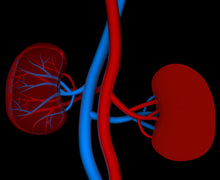
Polyphenolic compounds found in dark and brightly colored fruits and vegetables like blueberries and pomegranates are important for a healthy gut. New research from the University of Barcelona highlights the added importance of polyphenols on kidney function in older people through the development of the metabolite IPA.
Polyphenols in the gut fuel the growth of certain bacteria that can synthesize metabolites like indole 3-propionic acid (IPA), which is considered a postbiotic. Low levels of IPA are common among people with kidney diseases and diminished kidney function.
IPA also has antioxidant, anti-inflammatory and neuroprotective properties that are especially important to the health of the intestinal wall. That’s one reason polyphenols are considered critical in helping prevent some of the diseases associated with aging.
"If we consider the beneficial effects of IPA on the gut microbiota and health in general, it is important to find reliable strategies to promote the production of this metabolite," said Tomás Meroño.
Researchers checked the IPA levels of 51 volunteers over the age of 65 who adhered to a diet high in polyphenols. They added things like green tea, bitter chocolate, apples, pomegranate and blueberries to their diet for eight weeks.
It caused a significant rise in IPA levels in the blood and resulted in a decrease in inflammation. Researchers also saw positive changes in the gut microbiota. But they did not observe the same effects in the volunteers who entered the trial with kidney disease. Scientists theorize that’s because they had a different composition of gut flora. They entered the trial with lower amounts of IPA compared to those volunteers with normal kidney function.
"These results could be clinically relevant, since the low IPA levels have been associated with a rapid decline of kidney function and a chronic kidney disease," notes Professor Cristina Andrés-Lacueva.
Click here to read more in the journal Molecular Nutrition & Food Research.



